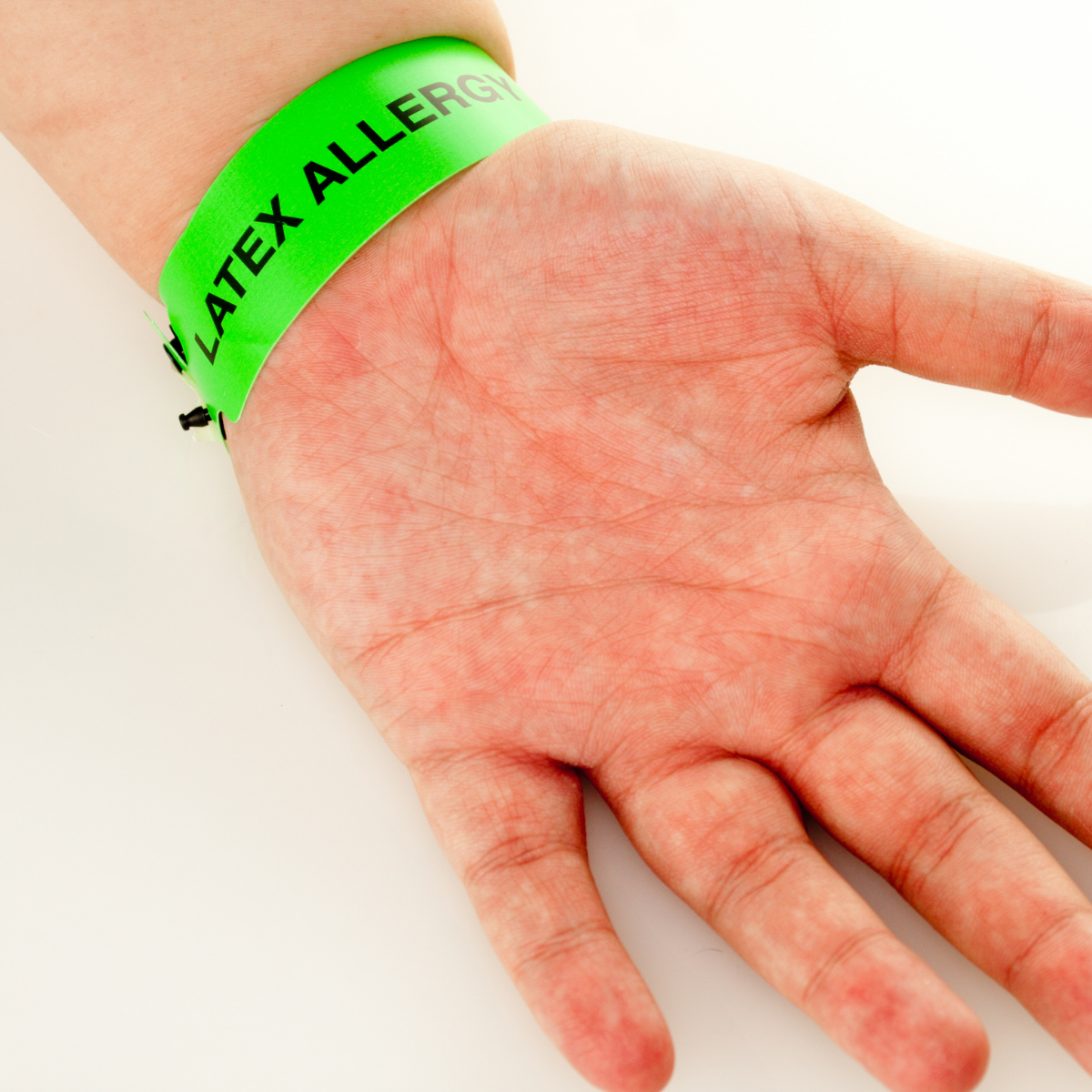Causes and risk factors
Repeated exposure to products containing latex can cause latex allergy. The products come in contact with mucus membrane which absorbs the latex protein. Individuals, who are susceptible, show immunological reaction by producing antibodies against latex protein antigen. Products such as erasers, balloons, rubber gloves, condoms, feeding bottles, shoe soles, elastic bands, bike handles, surgical masks cause this type of allergy. People with spina bifida, those who have undergone multiple surgeries, health care workers, rubber industry workers, and people with family history of latex allergy are the high risk groups.
Clinical presentation
Latex allergy can present as type I or type IV hypersensitivity. In case of type I hypersensitivity symptoms like redness and watering of eyes, running nose, sneezing, difficult breathing, anaphylactic reaction may develop such as hives, nausea-vomiting, wheezing, dyspnoea, drop in blood pressure, weak pulse, dizziness, loss of consciousness which can be life threatening. Type IV hypersensitivity such as allergic contact dermatitis may develop. Signs such as redness of skin, swelling, itching are seen.
Investigation
Medical history by the patient and Clinical examination by the dermatologist helps in diagnosis. Blood test for checking the sensitivity to latex is done. A skin test may be performed to elicit latex allergy.
Treatment
No cure for allergy of latex is known. The only treatment is avoiding contact with latex products. Antihistaminic may help in mild reactions. In case of anaphylactic shock, injectables adrenaline, oxygen, corticosteroids will be recommended. Patient should be shifted to emergency care as early as possible.
Other Modes of treatment
The other modes of treatment can also be effective in treating latex allergy. Homoeopathy is a science which deals with individualization considers a person in a holistic way. This science can be helpful in combating the symptoms. Similarly the ayurvedic system of medicine which uses herbal medicines and synthetic derivates are also found to be effective in treating latex allergy.






























